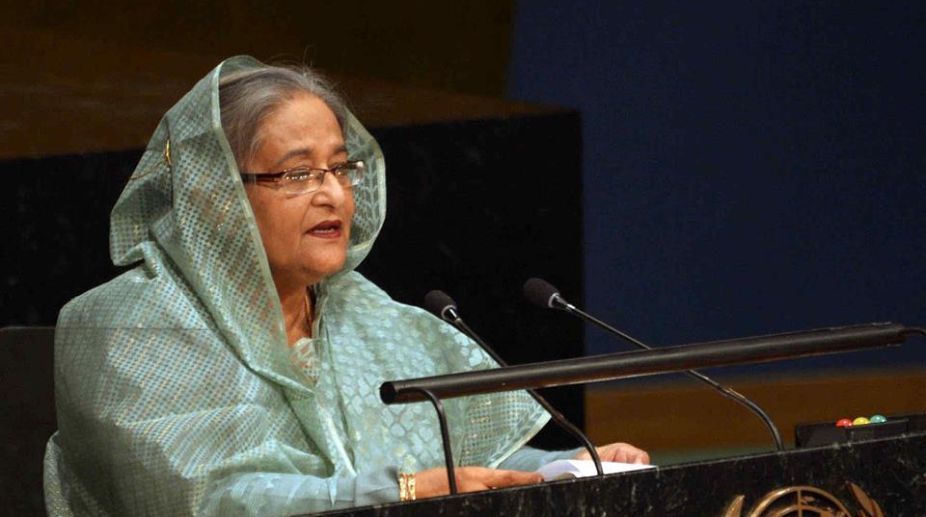Willing to help support earnest efforts for peace in Gaza, Ukraine: PM Modi
Prime Minister Narendra Modi expressed his willingness to help support earnest efforts that could lead to early restoration of peace, particularly in Gaza and Ukraine.
It would be no exaggeration to suggest that the clash of shields and boots on the ground have escalated to a severe economic crisis.

Bangladesh PM Sheikh Hasina (Photo: Facebook)
Ukraine is a long way from Dhaka and not merely in terms of distance. Perhaps alone in South Asia, the Bangladesh Prime Minister, Begum Hasina, has advanced a fervent appeal to the United States of America to withdraw the sanctions it has imposed on Russia as “punishment” for invading Ukraine. This unilateral decision, she said, had “violated human rights by hurting the people across the world”. Factually, she has hit the bull’s eye. The crippling curbs that any sanctions entail have not merely impinged on Russia, as arguably designed by the White House, but have severely affected lands beyond the former Soviet frontier. In her reckoning, the disruptions in the supply of commodities, most particularly medicines, food and fuel is a “kind of violation of human rights”.
The sanctions had affected a large swathe of countries the world over, including the developed bloc, pre-eminently the United States, the United Kingdom and the whole of Europe. It would be no exaggeration to suggest that the clash of shields and boots on the ground have escalated to a severe economic crisis. Hasina has implicitly called for a “retreat” from the “act of punishing one country which is hurting the people across the world”. In sum, she has called for the lifting of sanctions that the United States and its allies have “imposed on the world”. While Hasina was addressing a captive audience at the inauguration of the new building of the ministry of foreign affairs, the presentation was addressed primarily to governments in Washington and the European countries.
Advertisement
The conflict may be localized to Ukraine, but historically there are not many wars that have economically convulsed countries in different parts of the world. As regards the Bangladesh economy, the war, which is now nearing its fifth month, has impinged on the country’s economy considering the ballooning inflation which has touched an eight-year high of 7.42 per cent in May and brought down the foreign exchange reserves to less than $42 billion, indeed the lowest in 18 months. Not that the war hasn’t dislocated the economy of neighbouring India where the Reserve Bank recently revised the GDP forecast downwards owing to the spurt in crude prices.
Advertisement
It is significant that New Delhi hasn’t teamed up with the European Union and the United States on sanctions. “India cannot be a pale imitation of others,” is the response of the external affairs minister, Mr S. Jaishankar. That said, the Indian response to the sanctions has been less than forthright in comparison to Hasina’s robust pitch for the withdrawal of such economic curbs. “As we have the land and people, we have always tried to increase the production of food and other goods. But we need diesel, fertilizer and other materials to increase production, indeed commodities that we are not getting now.” In a word, sanctions in a different part of the world have blighted the economy of Bangladesh. Geopolitics can be quirky
Advertisement